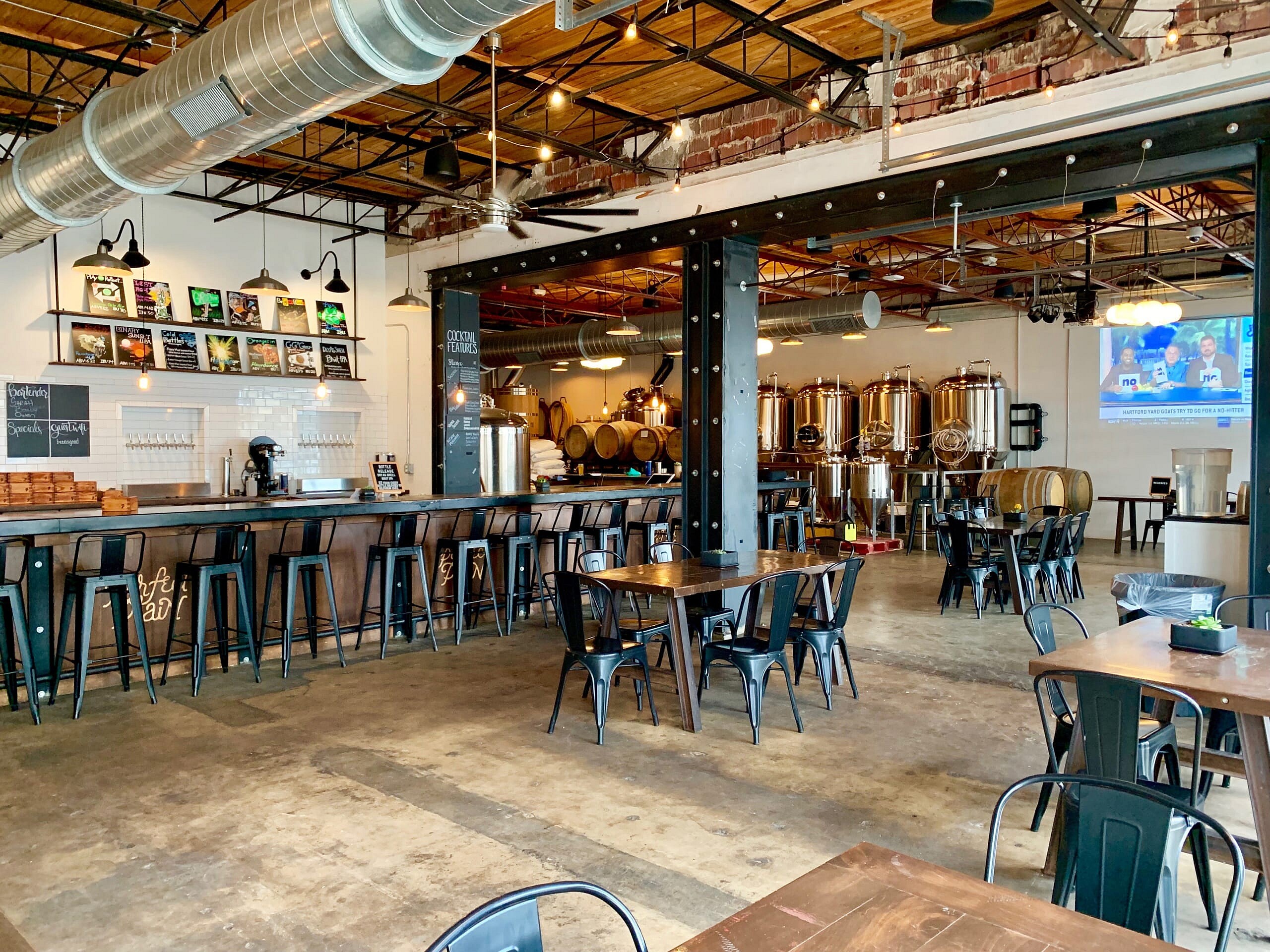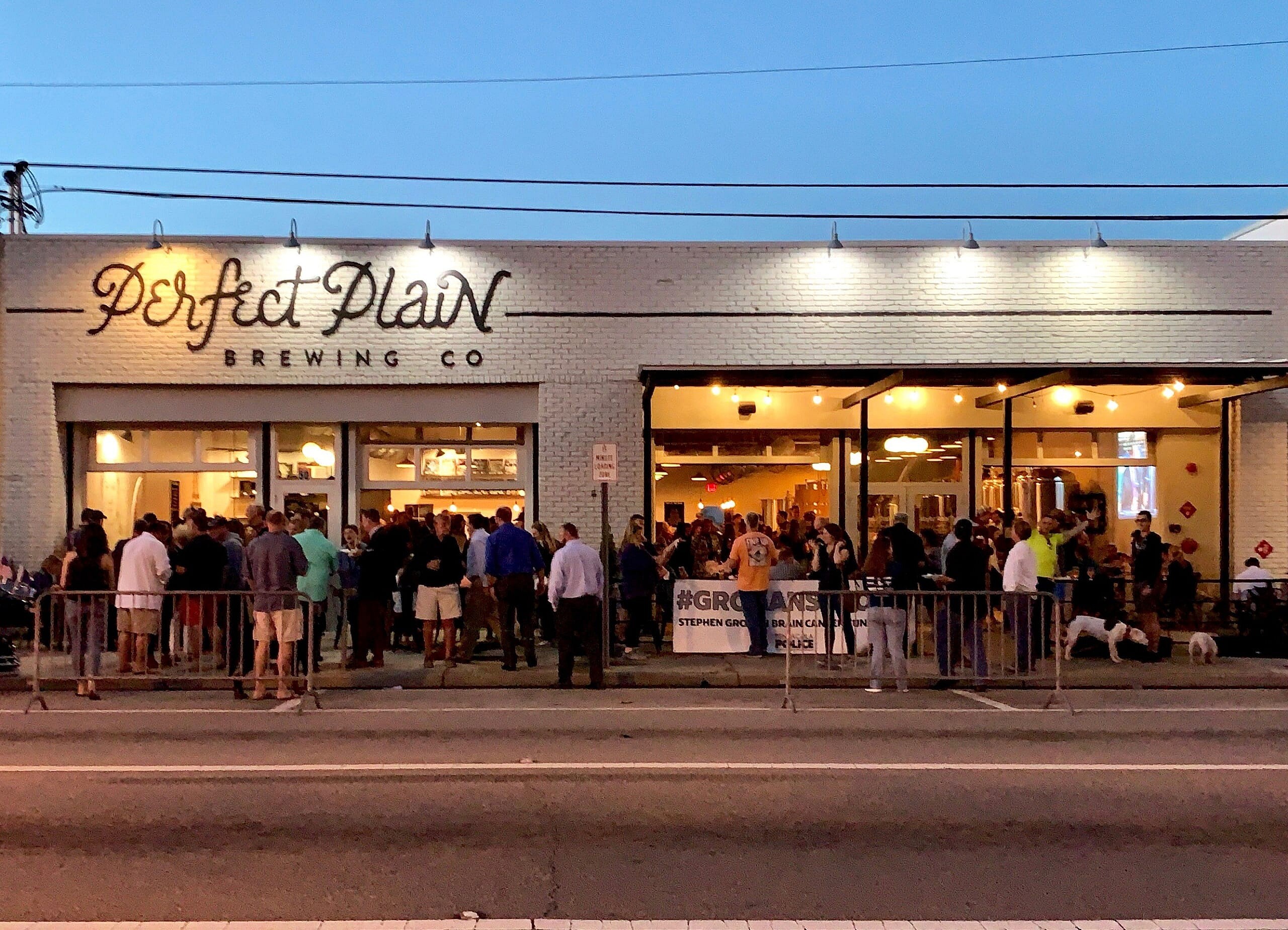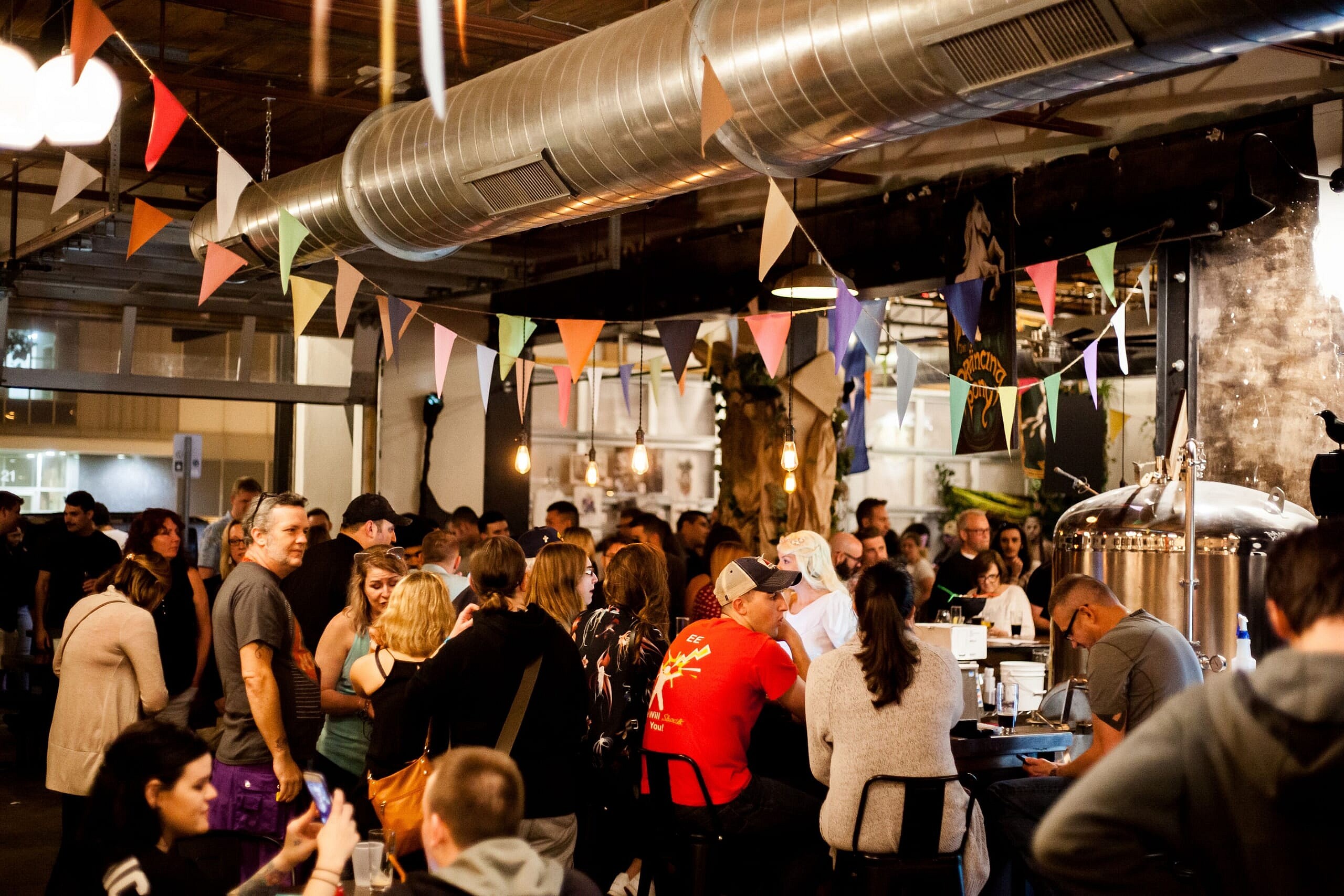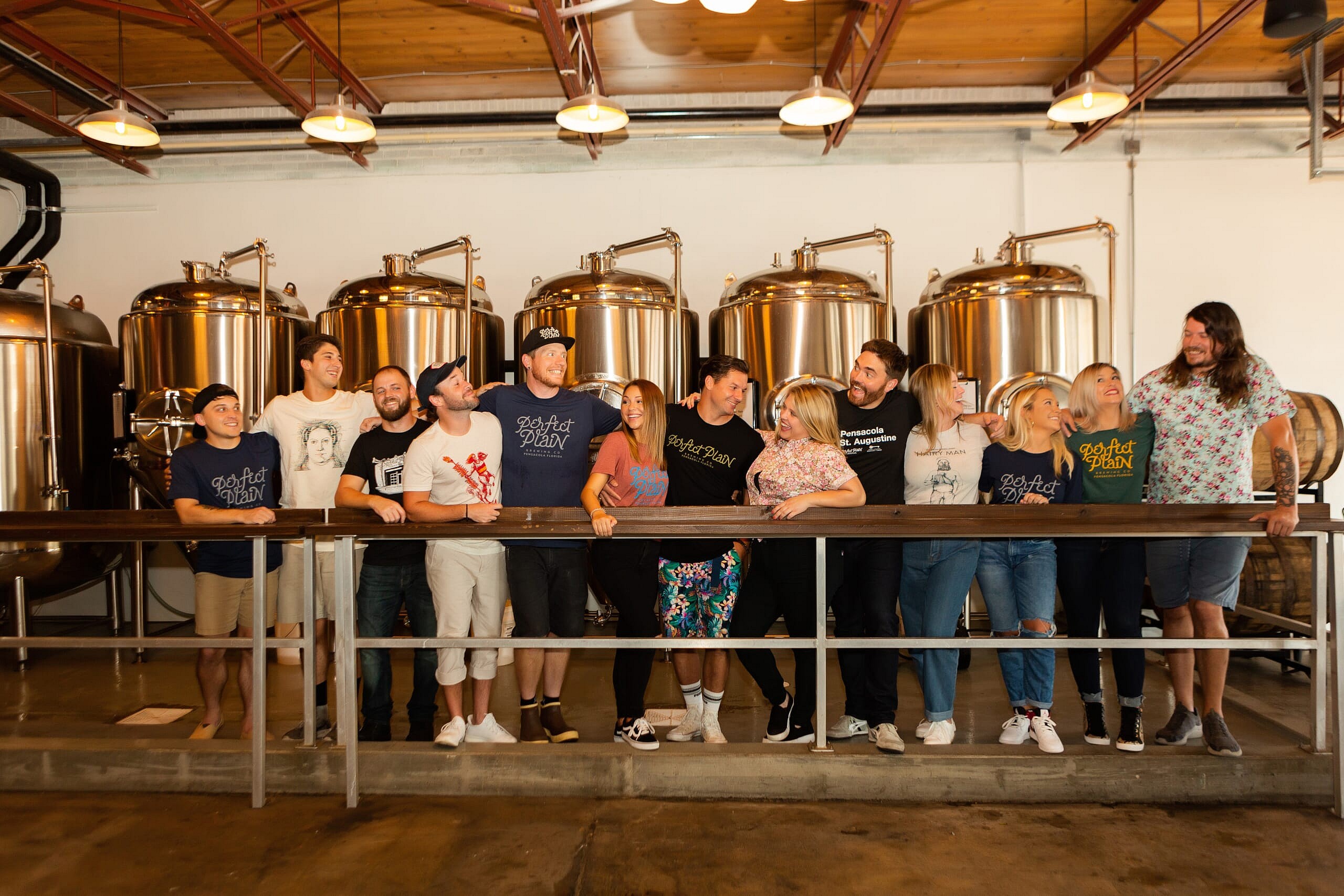5 Rules for Launching Your Own Successful Microbrewery
Follow these essential tips to build a profitable craft brewing business.

If you’ve ever sat around drinking good beer in a brewery, just wondering why you haven’t left that cubicle at the office to do something fun, welcome to my life circa 2015.
We’ve seen a wave of new breweries in the good ol’ USA the past few years, and that has made beer lovers more meticulous about where they enjoy handcrafted suds. In The Microbrewery Handbook, I write about the saturation of the craft beer market and my experience opening Perfect Plain Brewing Co. in Pensacola, Florida.
Today, the market has matured to the point where craft brewery success is about more than just the beer. It’s about how you treat your employees, how you market, and how you hire. I elaborate on these things and so many others in the book.
But here, for those deskbound daydreamers, let me introduce five key tips to opening a successful, taproom-focused microbrewery:
1. Have Money to Make Money

Capital is king. So, you need cash, right? An incredible concept in business, I know. But here’s the unique thing in the brewing industry that your run-of-the-mill bar may not have to deal with: Equipment is expensive. The additional electrical and plumbing needs are pricey – and unique to you, not your landlord.
Opening a craft brewery is opening two businesses, not one. You’re a manufacturer and a retailer and you’re marrying the two. That comes with complications, most notably, the aforementioned capital-intense startup.
So, it’s a more complicated and more expensive setup. What’s the upside If you can weather that, though, is a strong chance you can generate cash flow as a business much faster than a standard bar or restaurant.
You’re making your own beer and cutting out two middlemen: A beer distributor (assuming your state isn’t so archaic that they’re still limiting taprooms) and the retailer. You are all three tiers – Manufacturer, Distributor, Retailer. It’s the recapturing of that revenue that can make a taproom really successful. If you can first capitalize your project correctly, a brewery can operate strongly from the start.
The biggest mistake I see breweries make is undercapitalizing. Instead of raising the capital they need to succeed, they rationalize being able to do it on whatever budget they can afford. They’ll buy smaller equipment, then can’t keep up with demand, or the equipment is too undersized to even produce a sustainable profit. In other cases, instead of earmarking dollars to invest in the taproom on the customer experience, they blow their cash on equipment and have a DMV taproom vibe.
Pro Tip: Because of these infrastructure needs, it’s nice to be able to buy your building, or have a lease option to buy. If not, when the lease is up the landlord will have you leveraged knowing how expensive it would be for you to move.
2. Understand The Market

When we opened in 2017, we were one of just three breweries in our midsized downtown. Two years later, that number will be doubled. Have a real conversation with yourself and others you trust to give candid feedback about what will set you apart.
Will you be making styles that are desirable and new to your market? Is it a good location? Is your taproom the best? Are you the first in an emerging neighborhood? Will you also have a cocktail program? You need to decide these things and clearly define what makes you different.
I have one rule I mention in my book: You can’t say “I’ll make the best beer.”
Everyone has said that before you. The next breweries will say it after you. Be honest with yourself about defining tactics to disrupt, or at a minimum, shake up the market.
3. Know What You Know
According to a book called E-Myth Revisited by Michael Gerber (a great read for any business owner), 80 percent of small businesses are opened by “technicians.” That means a baker opens a bakery, brewers open the breweries, circus clowns open party clown businesses.
We were fortunate to have an eclectic mix of ownership and leadership with varying skill sets. I come from the business and marketing side as a former journalist. Reed Odeneal, my friend, co-owner and our director of brewing operations, gave me the confidence to handle the technical aspects of the brewing process.
Most often, since the brewer opens the brewery, they tend to downplay the importance of other things like customer service, branding, and employee engagement—things that are vital to success. If you don’t know those things? No problem. Look into building a team – brewers, managers, staff – with a wide variety of skills that can cover your bases.
4. Own The Atmosphere

When we have a full taproom at Perfect Plain in Pensacola, I look around and ask myself – why do people come here? Other than the owner being so unbelievably amazing, that is.
The beer is a huge part of it, and something that can’t be short-changed. You have to commit to a great product and never selling your brand short with a bad product. (I like the idea that Burial Beer Co. founder Doug Reiser shared with me—that he thinks his brewery should be required to dump a certain number of batches for lack of quality each year. Just to keep quality top of mind. I’d love it if that was a rule for all breweries.)
But the atmosphere and vibe are just as important. How does the space feel? How is it different from the brewery or bar down the street? Just as much time needs to be invested in answering this question as in recipe generation. While some may envision knowledgeable customers walking in and asking questions about every meticulously crafted beer, in many cases, people just want a place with great beer that they can also enjoy.
5. Embrace Your Community

I attribute much of the success of the craft beer emergence to two important overarching trends: First, people like knowing their product is quality and made fresh. That goes for food, that goes for beer, that goes for those trinkets you buy at the local farmer’s market.
Second is the thirst for local people to support local businesses. That is more important in America than ever, and I don’t think local business should be immune to the same expectation.
When we built our taproom, we hired only local artisans to make our lights, bar and furniture. We many fundraising events and give a portion of sales to charities—with one important stipulation: All non-profit organizations we donate to must use the money to help others in our community.
We like to say that we’re not just a brewery, we’re a communal space that happens to make beer. We are passionate about being community-minded, and we know that support works both ways.
I feel it’s a truly local brewery’s duty to serve its neighbors, not just expect everyone to buy its beer.
Be sure to honor your home in everything you do.

